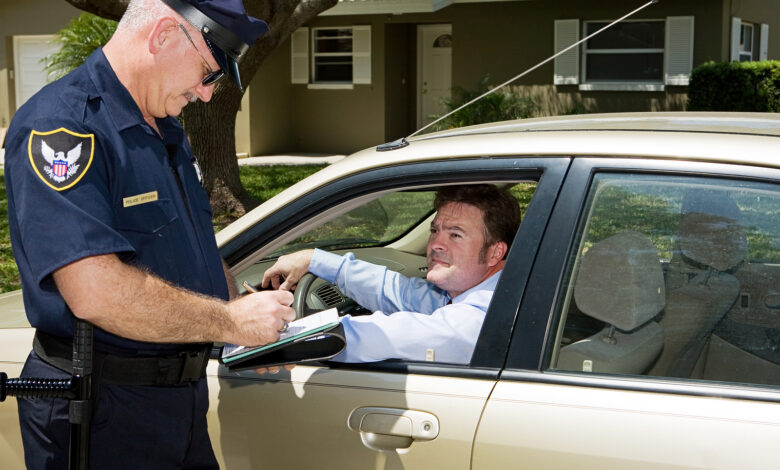How to Get Bail for Serious Traffic Violations in Gulfport, MS

Traffic violations are an inevitable part of life. Whether it’s speeding, illegal parking, or driving under the influence (DUI), most people find themselves dealing with traffic tickets at some point. In Mississippi, most traffic violations result in a citation that doesn’t require an arrest. However, when more serious offenses occur, the consequences can be severe, and bail may be required to secure your release. Understanding how bail works for serious traffic violations, especially in Gulfport, MS can help you navigate the process more efficiently.
What Are Serious Traffic Violations?
Before diving into the bail process, let’s first define what qualifies as a “serious” traffic violation in Gulfport, MS. Serious traffic violations are typically those that put public safety at risk or involve significant legal consequences. Some common examples of serious traffic violations in Gulfport include:
- Driving Under the Influence (DUI): Driving under the influence of alcohol or drugs is considered a serious violation. DUI laws in Mississippi are strict, and individuals arrested for DUI face significant fines, license suspensions, and possible jail time.
- Reckless Driving: Reckless driving is often defined as operating a vehicle in a way that shows disregard for the safety of others, such as excessive speeding, tailgating, or dangerous lane changes.
- Driving Without Insurance: In Mississippi, drivers are required to carry liability insurance. If you’re caught driving without it, you could face both fines and jail time.
- Hit and Run (Leaving the Scene of an Accident): If you’re involved in an accident and leave the scene without providing your information, you could be arrested and face serious legal penalties, including jail time and hefty fines.
- Driving with a Suspended or Revoked License: If your license has been revoked or suspended and you are caught driving, the violation can lead to an arrest and significant fines, along with a possible jail sentence.
The Bail Process for Serious Traffic Violations
If you’re arrested for any of the above violations, you may be required to post bail to secure your release. Bail is a financial guarantee that you will appear in court for your scheduled hearings. In serious cases, the judge sets a bail amount based on various factors, including the severity of the violation and the defendant’s criminal history. Here’s a breakdown of how the bail process works for serious traffic violations in Gulfport, MS:
1. Arrest and Booking
After an arrest for a serious traffic violation, you will be transported to the local jail or detention facility for booking. This process involves fingerprinting, taking photographs (mugshots), and recording personal information such as your name, address, and the charges against you. You may also undergo a background check to determine if you have any outstanding warrants or a criminal history.
At this point, the jail may give you information about your bail amount or direct you to a bail hearing where the judge will determine your bail.
2. Bail Hearing
In most cases, the judge will conduct a bail hearing to decide how much bail is required. If you’ve been arrested for a serious traffic violation, such as DUI or reckless driving, the judge will take into account several factors to determine the appropriate bail amount:
- Severity of the offense: Serious offenses like DUI or hit and run often result in higher bail amounts compared to minor traffic violations.
- Flight risk: If the judge believes you’re likely to flee or not show up for future court hearings, they may set a higher bail.
- Criminal history: If you have prior offenses, especially related to traffic violations or criminal behavior, the judge may impose stricter bail conditions.
- Public safety: The judge may assess whether you pose a threat to public safety if released on bail. For example, a DUI offense may result in stricter conditions to ensure you don’t drive again while your case is pending.
3. Posting Bail
Once the bail amount has been set, you have several options for posting bail. The most common ways to post bail for a serious traffic violation include:
- Cash Bail: If you can afford it, paying the full bail amount in cash directly to the court is an option. The money is returned to you after the case is resolved, assuming all court appearances are made.
- Surety Bond: If you can’t afford the full cash bail amount, you can contact a bail bondsman who will post bail on your behalf in exchange for a non-refundable fee. The typical fee is around 10% of the total bail amount. A bail bondsman will also require collateral, such as property, cars, or jewelry, to secure the bond.
- Property Bond: In certain cases, property can be used as collateral to secure bail. If you or your family owns real estate, a property bond may be an option to get out of jail.
- Release on Own Recognizance (ROR): In some cases, the judge may allow you to be released without bail, especially if it’s your first offense and the violation wasn’t severe. This means you’ll be trusted to appear in court without needing to pay bail upfront. However, if you fail to show up for your hearing, you could face severe penalties.
4. Conditions of Release
After posting bail, the judge may impose certain conditions on your release. These conditions are set to ensure that you will return for your court hearings and do not pose a risk to the community while free. Common conditions for those arrested for serious traffic violations may include:
- No driving: If you’ve been arrested for a DUI or reckless driving, the judge may order that you not drive until your case is resolved.
- No alcohol or drugs: In cases of DUI, the judge may prohibit the use of alcohol or drugs while out on bail.
- Regular check-ins: Some individuals may be required to check in with a probation officer or the court regularly to ensure they are following the conditions set by the court.
- No contact with victims: In cases of hit and run, the judge may impose restrictions on communicating with the individuals involved in the incident.
Why Bail Bonds Can Be Crucial for Serious Traffic Violations
If you or a loved one is arrested for a serious traffic violation in Gulfport, MS, working with a bail bondsman can be crucial for several reasons:
- Quick Release: Bail bondsmen are available 24/7, meaning they can help you secure quick release, especially during off-hours when courts are closed.
- Financial Assistance: Most people cannot afford to pay the full bail amount upfront. Bail bondsmen charge a non-refundable fee (typically 10% of the bail amount), making it a more affordable option for securing your release.
- Expert Guidance: Bail bondsmen are experienced professionals who can guide you through the entire process, from posting bail to ensuring compliance with court conditions.
- Peace of Mind: Working with a bail bondsman takes some of the pressure off the defendant and their family, ensuring that the legal process goes as smoothly as possible.
What Happens After Release?
Once you’ve been released on bail, it’s important to attend all scheduled court hearings and comply with any conditions set by the judge. Failure to appear in court or violate any conditions could result in your bond being forfeited and your return to jail. It’s crucial to stay in contact with your bail bondsman and follow all instructions given to you by the court.
Common Mistakes to Avoid
When dealing with a serious traffic violation and bail, there are a few common mistakes that individuals often make:
- Failing to attend court hearings: Missing a hearing can result in the forfeiture of your bail and possible additional charges.
- Not complying with bail conditions: Violating conditions like driving or using alcohol can lead to revocation of your bond.
- Not seeking help from a professional: Working with a bail bondsman can help ensure a faster and smoother process. Attempting to handle bail on your own can lead to delays and complications.
In Gulfport, MS, serious traffic violations can lead to arrests that require bail. The bail process can seem overwhelming, but understanding the options available can help you or your loved one navigate the system efficiently. Whether you choose to pay cash bail, work with a bail bondsman, or use property as collateral, securing your release is the first step in resolving the case. Be sure to follow all court requirements, attend hearings, and work with professionals to ensure a smooth legal process.



